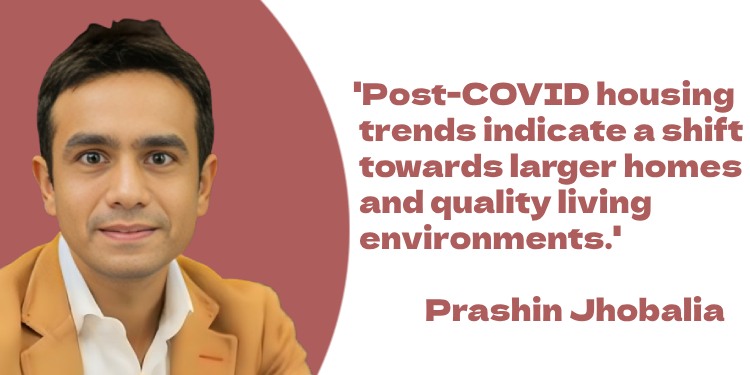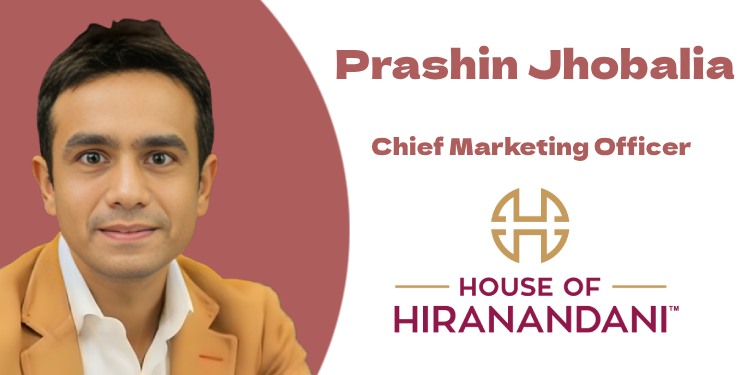House of Hiranandani recently introduced the #TomorrowMatters campaign, aiming to address the climate crisis collaboratively. This five-year initiative targets diverse aspects of the environment for impactful change.
The IPCC emphasises the need to limit global temperature rise to 1.5C to avoid severe impacts like extreme heat, sea level rise, coral reefs loss, and threats to ecosystems and human populations. These changes could become irreversible with accelerated warming.
TomorrowMatters looks to address environmental urgency by promoting behavioral and lifestyle changes in communities to mitigate climate change impacts and safeguard the environment for future generations.
TomorrowMatters focuses on four sustainability pillars – Grow Green, Waste Wise, Eco-Enlighten, and Energy Smart – each targeting environmental concerns for a healthier planet.
Medianews4u.com caught up with Prashin Jhobalia, Chief Marketing Officer, House of Hiranandani
- How did the idea for the Tomorrow Matters campaign come about?
A: Sustainability is one of the key principles guiding our development philosophy and practices. Over the years, we have integrated numerous eco-friendly initiatives, from energy-efficient building designs to extensive green spaces, all aimed at minimising our environmental footprint. The creation of the Tomorrow Matters campaign was inspired by our ongoing commitment to these principles and the urgent need to address the global climate crisis.
This campaign represents a significant evolution of our sustainability efforts, setting ambitious goals to drive positive change over the next five years. It aligns perfectly with our long-term vision of environmental responsibility and community engagement, building on our history of sustainable development to ensure a better future for generations to come.
- How do CSR activities help with brand building?
Corporate Social Responsibility (CSR) activities are a powerful tool for brand building as they reflect a company’s values, commitment to social causes, and connection to the communities it serves. By engaging in CSR, a brand demonstrates its responsibility beyond profit-making, fostering trust and credibility among consumers, employees, and stakeholders. This alignment with ethical practices and community welfare helps to create a positive brand image, differentiating the company in a competitive market.
Moreover, CSR initiatives often increase customer loyalty and employee engagement, as people increasingly prefer associating with organizations that prioritise social and environmental impact. These activities also generate valuable storytelling opportunities, enhancing the brand’s narrative and visibility across various platforms and ultimately driving long-term growth and brand equity.
- How does Tomorrow Matters address environmental challenges?
Tomorrow Matters is a campaign conceptualised to tackle the climate crisis through a collaborative approach. The five-year long campaign encompasses multiple targeted goals among various facets of our environment to bring about a significant and impactful change.
The Tomorrow Matters initiative stems from the global environmental urgency and lays an approach to bring about behavioral and lifestyle changes in the community to avoid the harsh impact of climate change and protect the environment for future generations.
At the heart of Tomorrow Matters are four sustainability pillars with targeted goals, namely Grow Green, Waste Wise, Eco-Enlighten, and Energy Smart. Each pillar is designed to address specific environmental concerns and contribute to a healthier planet.
Grow Green addresses the issue of deforestation that significantly accelerates global warming. House of Hiranandani aims to plant at least 25,000 trees in the next five years across its projects and other barren lands in association with various communities.
Waste Wise addresses the escalating plastic waste crisis. According to the United Nations, every day, the equivalent of 2,000 plastic and waste garbage trucks is dumped in the world’s rivers, lakes, and oceans. With plastic waste production skyrocketing and recycling rates remaining alarmingly low, House of Hiranandani commits to recycling 18,000 kg of plastic waste. The initiative aims to convert over 3.4 million kg of wet waste into organic manure, reducing landfill accumulation and promoting sustainable waste management.
Eco-Enlighten is dedicated to increasing awareness about sustainable living. By empowering 1,00,000 individuals with actionable knowledge to reduce their carbon footprints, this initiative seeks to foster a culture of environmental responsibility and awareness.
Energy Smart focusses on the adoption of renewable energy sources. Fossil fuels, the largest contributor to global climate change, account for 75 percent of global greenhouse gas emissions. House of Hiranandani aims to generate 70 million kWh of renewable energy through solar panels and provide electric vehicle (EV) charging facilities in its projects. This initiative will reduce dependency on fossil fuels and contribute to significant electricity savings for residents.
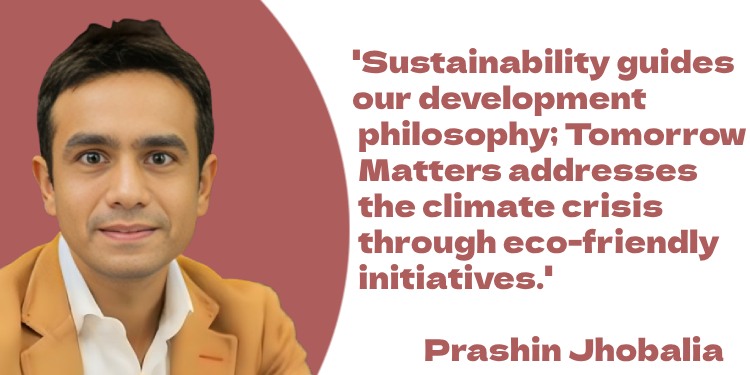
- What are the specific strategies and actions within the campaign aimed at tackling pressing environmental issues?
A: The key targets of the Tomorrow Matters campaign include:
- Planting 25,000 trees to enhance green cover.
- Recycling 18,000 kg of plastic waste to reduce landfill burden.
- Converting 3.4 million kg of wet waste into organic manure to promote sustainable waste management.
- Generating 70 million kWh of solar energy to cut down on fossil fuel use.
- Providing EV charging facilities to support the shift to electric vehicles.
Our approach to achieving these goals is both strategic and inclusive. We are collaborating with various communities, environmental organizations and educational institutions to drive our initiatives forward. By mobilizing the House of Hiranandani community—comprising 25,000 families, 89,000 students, and over 1,000 employees—we will conduct engaging events and environmentally-focused workshops. Each campaign pillar is supported by dedicated teams within the company, led by functional heads, who will actively participate in these activities and monitor its progress to meet our five-year objectives.
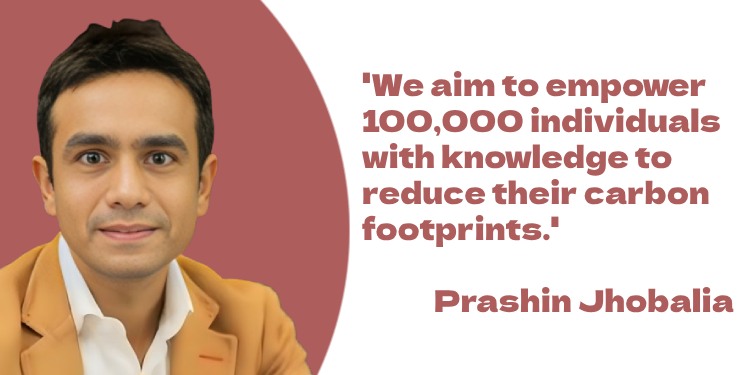
- What are the plans to continue integrating sustainability into the company’s communications and practices?
Engaging and educating the community is a cornerstone of the Tomorrow Matters campaign. We plan to organise educational workshops, community events, and awareness campaigns to disseminate knowledge about sustainable practices. We will also leverage digital platforms to reach a wider audience and share practical tips on reducing carbon footprints. Collaborations with schools, local organizations, and environmental groups will further amplify our efforts to foster a culture of sustainability.
Additionally, our annual events such as Hiranandani Thane Half Marathon, Hiranandani Thane Cyclothon that attract over 16,000 runners and 2,000 cyclist, respectively, are conducted in a mindful manner. These events provide excellent platforms to reach a broader audience and promote the Tomorrow Matters campaign. It not only helps us engage with our community but also amplify our message of sustainability, encouraging widespread participation and support for our environmental goals. Through these collaborations and events, we aim to integrate sustainability into the fabric of our community, leveraging collective efforts to drive significant and lasting environmental impact.
- Could you shed light on the current challenges in marketing sustainability and the potential opportunities on the horizon?
One of the main challenges in marketing sustainability is effectively communicating the complexity and urgency of these issues in a way that resonates with diverse audiences. To tackle this, we focus on crafting clear, relatable messaging and storytelling highlighting our sustainability initiatives’ tangible benefits. Our strategy includes producing and marketing videos that showcase the four key pillars of the Tomorrow Matters campaign, making our message more accessible and impactful to our audience.
Engaging influencers and community leaders to advocate for the campaign has also built trust and credibility. Additionally, we continuously gather feedback and adapt our strategies to ensure they resonate with our audience and drive meaningful engagement. This dynamic approach allows us to address challenges head-on and strengthen our communication efforts throughout the campaign.
- What are the brand’s marketing goals for the next five years?
We are utilising a multi-faceted 360 degree marketing strategy that includes digital and traditional media to promote Tomorrow Matters. We are creating engaging content for social media platforms, launching a dedicated campaign website, and utilizing influencer partnerships to reach a broader audience. Additionally, we also plan to enhance visibility through outdoor hoardings and by organizing events and workshops to showcase our initiatives and engage directly with the community.
Our marketing strategy will emphasise raising awareness about our sustainability actions and their impact. We aim to achieve this by showcasing our initiatives’ progress and successes through regular updates and storytelling across multiple platforms.
Over the next five years, our goal is to strengthen brand loyalty, form strategic partnerships, engage in community collaborations, and create meaningful content that aligns with our sustainability ethos. By doing so, we aim to increase brand visibility, drive consumer engagement, and build long-term relationships based on shared values.
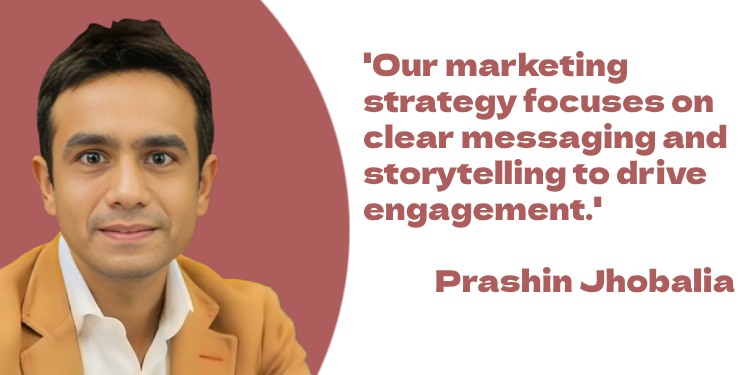
- Does the media mix consist mainly of print and digital? Kindly elaborate.
We plan to adopt a holistic approach in strategising and planning our media outreach for Tomorrow Mattters. The platforms will be a combination of digital, print, radio, influencers, podcast, activations, events etc.
- In terms of housing, where are the whitespace areas for growth?
We are living in a fast paced environment. Housing is not only a necessity but has also become dynamic over a period of time. Post Covid, people prefer investing in a home than renting an apartment. There is higher demand for larger homes located in remote locations. Quality, technology and innovative practices play a critical role in defining modern homes. There is a wide scope for improvement in these segments that can enhance the durability of the apartment and provide convenience to the home buyer. Green spaces are essential for the health and well-being of the home buyer. There is a wide scope for enhancing greenery in urban areas, and adding to the wellness quotient of the buyer by providing a favorable living environment.
Communities created by House of Hiranandani are planned thoughtfully. Durability, sustainable and clean surroundings, convenience, easy accessibility, aesthetics are some of the essentials in our projects that enable the buyer to live a wholesome lifestyle.
